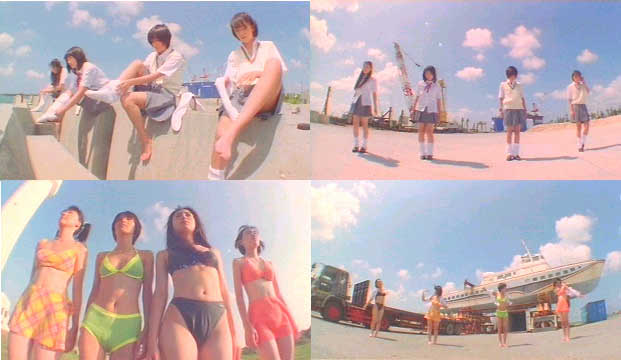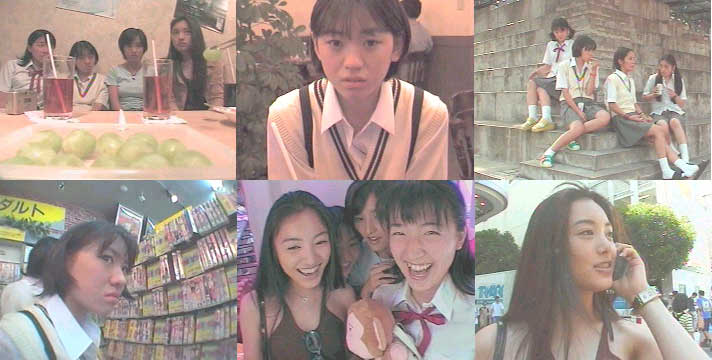

In 1997 the sublime “Bounce Ko Gals” directed by Masato Harada was released to much critical acclaim and co-incidentally (or not) a year later Love & Pop came out. Both focused on the world of Kogals and explored similar themes – female bonding, growing up and “dating” older men for money (“enjo kosai”). The two films even shared a major plot point in which one of the girls had to earn a large amount of money in a short period of time and her cohorts help her out in this endeavor. Love & Pop is a smaller film made on a very lean budget and shot with a handheld Handycam, but it has its quirky charms and like “Bounce Ko” it manages to rise above the often sordid details to be a triumphal expression of friendship, individuality and teenage survival. Though set in contemporary times, Love & Pop captures a nostalgic sense of life change – of the moments when you begin to move from teenager to adult – and the baggage that comes along with that and the baggage left behind.
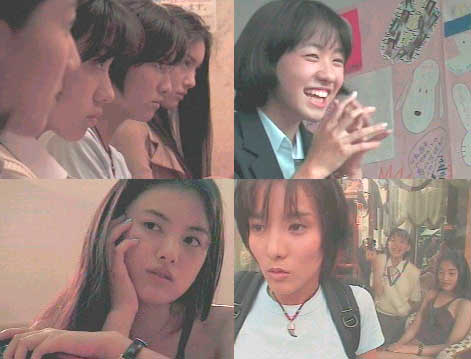
Prior to this film, director Hideaki Anno was known for his anime feature Neon Genesis Evangelion that apparently made big waves in the anime fan base with some extremely controversial aspects. I know nothing about anime and prefer keeping it that way but the film seemingly combined typical anime ingredients- advanced sci-fi technology, children saving the world type of thing - with mysticism, psychology and religion. This film was his first live action endeavor – based on a novel by Ryu Muramaki – and though it has anime sensibilities particularly in the camera work – it is an emotionally compelling look at these teenagers that verges on being a quasi-documentary. Since Love & Pop, Anno has gone on to make “Ritual” and the recent pop phenomenon “Cutie Honey” that is based on an anime.
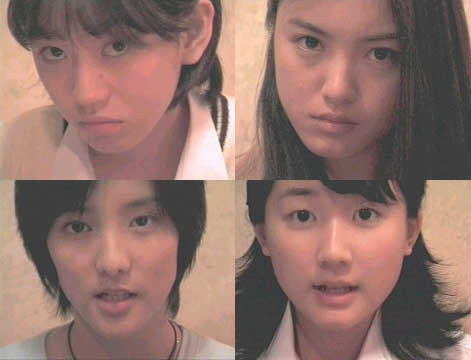
Sixteen year old Hiromi (Asumi Miwa) is a seemingly ordinary teenage girl from a middle class family with a father obsessed with train sets, a mother into the butterfly stroke and a sister who doesn’t say much of anything. She spends nearly all of her waking hours though hanging out with her three friends in the streets, cafes and malls of Shibuya idling away time, talking about boyfriends, shopping and when needed finding opportunities to earn cash through subsidized dating. Subsidized dating is a term for young girls who meet older men for money and the ensuing activities can range from dinner to karaoke to sex depending on the man and what the girl is willing to do. Hiromi and one friend are propositioned by one man to come back to his apartment and allow him to cook for them – at another time the four friends karaoke with a man who’s only carnal request is for them to chew lightly on a Muscat (a sweet white grape) that he then retrieves and puts into his collection. It is part of the often commented upon Japanese obsession with schoolgirls that seems to have a strong hold on the male psyche of that country. Young girls are able to make contact with customers through something called telephone clubs that act as oral bulletin boards in a sense as girls leave messages and men call them back to make arrangements. Hiromi’s message panders to men who like girls with no breasts. What strikes the viewer is how this is all treated as an almost after school activity – no worse than selling Girl Scout cookies door to door – and that the girls treat it almost as a game with no repercussions and no loss of innocence.
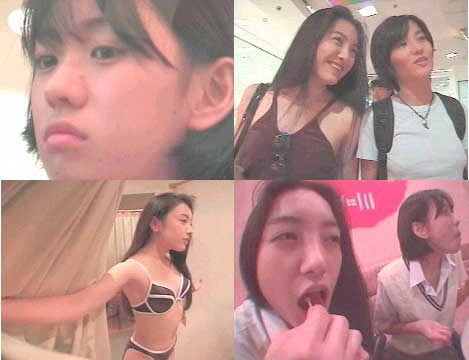
For these four friends this is a moment almost stuck in amber – a closely-knit quartet but at a point when they know their disparate interests will soon be pulling them apart – it is a time they want to savor. Nao (Hirono Kudo) has become interested in computers, Sachi (Kirari) in becoming a professional dancer and Chii (Yuki Nakama) has matured sexually and is leaving her girlhood behind at light speed. By the way Yuki Nakama has become a huge star since this film in television and is a stunning beauty with many web pages devoted to her. Hiromi – who is the internal narrator of this story as if this is a video diary – wants to hold on to this time as long as she can. The plot finally gets a bit of narrative focus when she decides that she just needs an expensive ring and must raise enough money by store closing time to buy it – and goes on a frantic odyssey into subsidized dating – meeting up with one guy who takes her to an adult video store and makes her wank him off and with another guy (Tadanobu Asano) to a love motel with disastrous results.
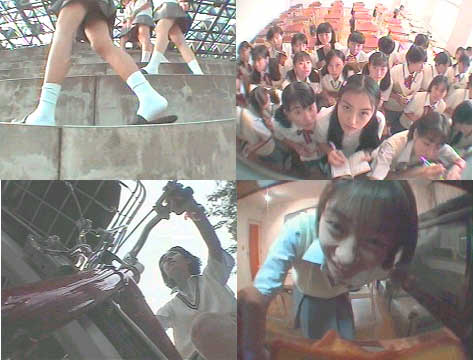
What might offend some viewers more than the subject matter of the film (which never gets at all graphic except for a glob infested hand) is the way in which Anno films it. It is difficult to understand exactly what was behind his thinking – is it suppose to be a parody or is it suppose to feel amateurish as if high school girls were doing the filming themselves – or he is playing right into the school girl fetish complex. He seems to have no rules or reason – the angles – the shots – seem completely arbitrary. At times the camera is POV from Hiromi’s perspective, other times he shoots from inside a microwave, from the bottom of a beer mug, under a dress looking down, from the bottom of a bicycle looking up a dress and so on. Often the image is distorted as his camera zooms in too close to the subject – it is chaotic and yet rather fun. Most of all though he focuses on the girls bare legs – often conversations will be going on at a table and the camera will firmly stay below the table filming their legs – very strange. The film ends and the credits role with the four girls simply walking almost marching abreast through a drainage sluice for a number of minutes as the water gets higher. I wanted to read this as symbolic of their walking into their futures – but perhaps Anno simply wanted more shots of their legs!
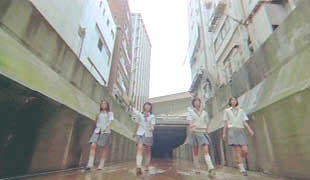
As a note, this film is available from Kino but the cover of the girls in bikinis is a bit misleading as this scene never appears in the film, but is instead in a musical video that is included as an extra.
My rating for this film: 7.0
